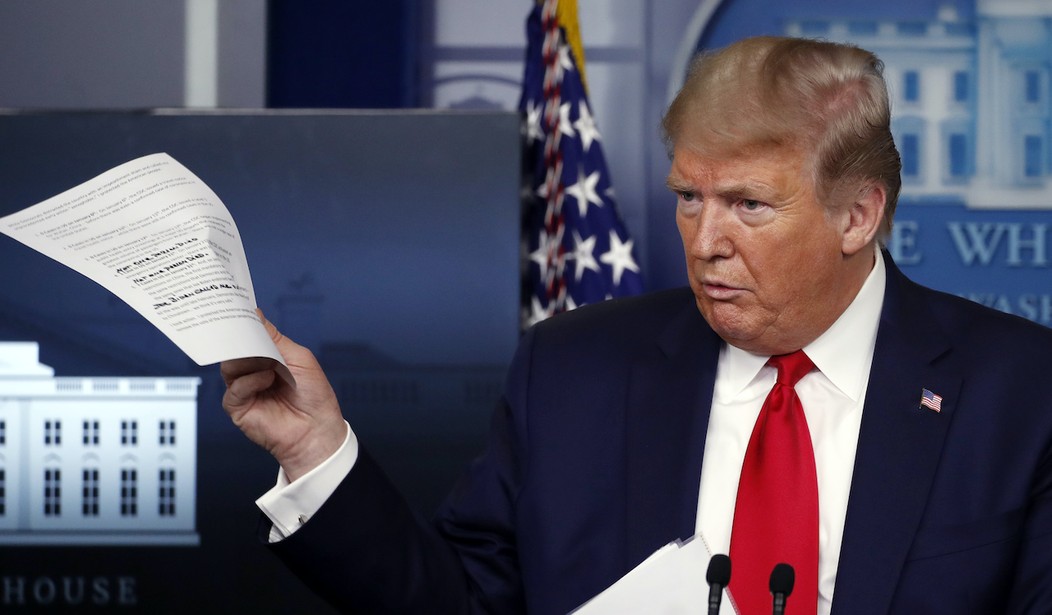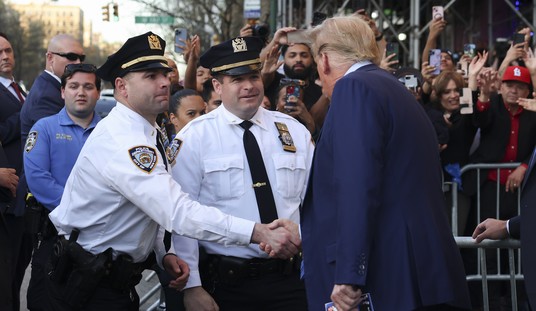If we look past the partisan sniping coming from the Democrats and the news media, it becomes evident that President Trump’s actions during the coronavirus crisis are a textbook case of strong and decisive leadership.
And yes, there actually are textbooks on leadership. Since World War II, with its high-profile political and military leaders, behavioral scientists have studied how a few people are able to rise to the challenge of leading others through difficult times. Most of the resulting theories of leadership emphasize the responsibility of leadership for deciding the strategic direction that their organization or nation will take. Apart from having the right strategy, however, there is the challenge of actually carrying out the strategy. Truly effective leaders have to align both the material and the human resources of the organization to meet the goals of the strategy.
President Trump has earned high marks in both areas.
Effective strategy begins with timely recognition of the forces that are bearing down on an organization or nation. While his political opponents were dragging the nation through a partisan impeachment effort, President Trump recognized and responded early on to the looming threat represented by the COVID-19 virus. Even while the virus was largely concentrated around Wuhan, China, President Trump took the decisive step of restricting travel from China, thus slowing the progression of the virus in America and saving countless American lives.
Recommended
But it is in his whole-of-America approach to aligning the nation’s material and human resources to fight the pandemic that President Trump’s leadership has been most exemplary. First, the President’s respect for the role of the states and the private sector in dealing with this crisis is not only essential from a Constitutional perspective, but it also shows wisdom from a practical leadership perspective. Second, his approach addresses the whole of America’s health, including physical, economic, and psychological health.
The separation of powers between the federal and state governments in our Constitution is grounded in our Founders’ profound understanding of the moral dangers of centralized power. But decentralized power has practical benefits as well, because people at the top of a centralized power structure cannot possibly have enough information to manage the myriad details of any complex organization or society. People at the local level have more information about their needs and resources and can make better decisions than those made by distant politicians or bureaucrats.
As a political leader, President Trump appreciates the balance of federal and state roles. And, as a business leader, he understands the difference between leading and micromanaging. From the earliest days of the crisis, the Trump administration’s approach has been for federal agencies to provide overall direction, coordination, and support, while leaving room for state governments, private industry, and local hospitals to respond to the local circumstances that they best understand.
Of course, the President has exercised power where needed. He has knocked down bureaucratic barriers to the development and distribution of tests, treatment and vaccine options, and supplies. But the Trump administration has left state governors, private businesses, and healthcare providers the flexibility to adapt creatively to circumstances on the front lines.
One shudders to imagine where the nation would be right now if a “progressive” president had been at the helm with a small band of Beltway bureaucrats exercising centralized, one-size-fits-all control over the nation’s response to the crisis.
The President’s approach to mitigation is showing signs of success. But all strategies involve tradeoffs and risks, and that is where President Trump’s whole-of-America strategy becomes especially relevant as pressure builds to restart the nation’s economy. The lockdowns of businesses and other private activities that have “flattened the curve” of disease spread have also stalled the economic boom that America has enjoyed since Trump’s election. Continuing those lockdowns puts America on a path to severe recession at best and, at worst, to economic catastrophe on an unparalleled scale.
Viral pandemics cause suffering and death from disease, but a pandemic of business failures, unemployment, and bankruptcies will wreck millions of lives through economic despair, stress-related illnesses, substance abuse, and skyrocketing suicide rates. And, if an economy breaks down badly enough, social order breaks down. Toilet paper shortages are annoying, but they are not life-threatening. If a prolonged shutdown stalls the supply chain and the food shelves become empty, social chaos will follow.
To listen to the critics, the challenge is to choose between lockdowns and sickness. But the real challenge is to consider the whole of America’s health. And that means charting a course that minimizes the suffering caused by the pandemic while avoiding the suffering caused by economic devastation. That is why President Trump is challenging his task force and the nation’s governors to begin reasonable steps to restart the nation’s economy while a strong recovery is still possible.
Predictably, the President’s opponents are demanding longer shutdowns and accusing him of valuing the economy over people’s health. Such accusations are not only self-serving – the President’s opponents stand to benefit politically from a stalled economy – but they are also irresponsible and dangerous.
Partisan critics have the luxury of asking the President how many deaths are acceptable in order to restart the economy. Those critics should tell America how much human suffering is acceptable to them if we fail to put our people back to work.
Dr. Tim Daughtry is a business consultant and co-author of Executing Strategy: From Boardroom to Front Line and also Waking the Sleeping Giant: How Mainstream Americans Can Beat Liberals at Their Own Game. Follow him on Twitter @TCDwriter.

























Join the conversation as a VIP Member